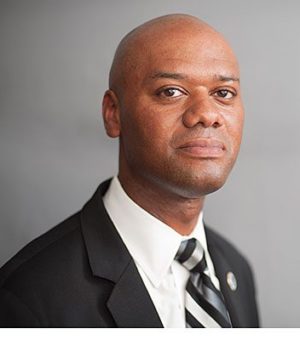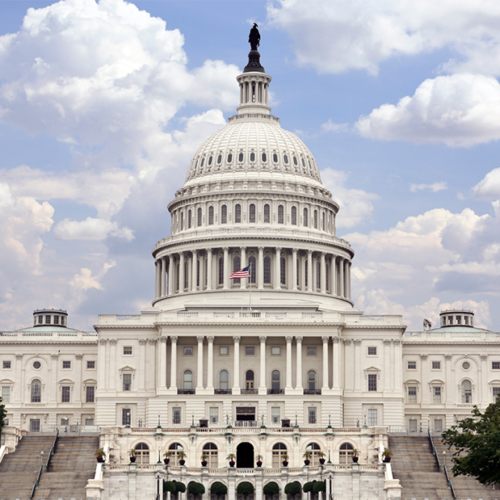
Bipartisan Backing: Congress Stands Firm on Key Justice Programs
Congressional leaders demonstrated strong bipartisan support over the past several weeks for three key programs in FY 2025—the Second Chance Act (SCA), the Justice and Mental Health Collaboration Program (JMHCP), and the Justice Reinvestment Initiative (JRI). All are designed to enhance public safety and diminish recidivism at local and state levels.
“We are immensely grateful to the bipartisan group of members of Congress who have championed these important programs, which play vital roles in supporting people involved with the criminal justice system and those affected by it. We look forward to collaborating with Congress to ensure these initiatives receive the necessary support in the FY2025 appropriations cycle,” stated Megan Quattlebaum, director of The Council of State Governments (CSG) Justice Center.
U.S. Representatives Danny Davis (D-IL) and Carol Miller (R-WV) and U.S. Senator Cory Booker (D-NJ) secured signatures from their colleagues in Congress to support continued funding of the Second Chance Act, which was initially authorized in 2009 and reauthorized as part of the landmark First Step Act of 2018. Since its enactment, SCA grant recipients have supported people in reentry with vital services including employment training and assistance, substance use disorder treatment, education, housing, family programming, mentoring, and victims’ support. So far, more than 1,100 grants have been awarded in 49 states, the District of Columbia, and U.S. territories, allowing jurisdictions to develop, improve, and expand reentry programs and policies. Grantees have also served more than 400,000 participants since 2009. A nationwide recidivism report released in April found a 23 percent decrease in state-level reincarceration rates since 2008. The report, 50 States, 1 Goal: Examining State-Level Recidivism Trends in the Second Chance Act Era, highlights innovative and evidence-based strategies supported by the Second Chance Act and provides new analysis on the country’s reentry landscape 15 years after its passage.
U.S. Representatives Bobby Scott (D-VA), Norma Torres (D-CA), and Don Bacon (R-NE) and U.S. Senators John Cornyn (R-TX) and Amy Klobuchar (D-MN) secured signatures from their colleagues in Congress to support funding for the Justice and Mental Health Collaboration Program. JMHCP supports criminal justice and behavioral health systems across the country as they work to safely divert people from the justice system and improve access to treatment and services. Initially authorized under the Mentally Ill Offender Treatment and Crime Reduction Act and reauthorized under the Justice and Mental Health Collaboration Reauthorization Act of 2022, JMHCP funds are critical to strengthening connections among community-based organizations and criminal justice agencies. Grantees have used JMHCP funding to develop and improve mental health courts, mental health and substance use disorder treatment for people in the criminal justice system, community reentry services, local law enforcement training to help officers improve responses to people with mental health needs, and many other interventions intended to address the behavioral health needs of people who come into contact with the criminal justice system. JMHCP has funded more than 600 grants across 49 states, as well as the District of Columbia, Guam, and American Samoa. In total, $217.9 million has been awarded, with individual awards ranging from $100,000 to $750,000.
U.S. Representatives Adam Schiff (D-CA), Carol Miller (R-WV), and Lucy McBath (D-GA) and U.S. Senators Thom Tillis (R-NC) and Sheldon Whitehouse (D-RI) secured signatures from their colleagues in Congress to support continued funding for the Justice Reinvestment Initiative. This data-driven approach helps states reduce corrections and related criminal justice expenditures, reinvesting the savings into strategies that enhance public safety. Since 2010, more than 40 states have used JRI funding to pursue policies to improve their justice systems and, in some cases, reduce the total prison population. Through JRI, states have avoided costs or saved more than $3.2 billion cumulatively, allowing them to invest hundreds of millions of dollars in effective supervision and treatment programs to make communities safer. These strategies include enhancing community supervision, expanding community-based treatment and services, establishing grants to support local law enforcement, improving victims’ services, and more.
Final funding levels will ultimately depend upon the congressional appropriations process later this year.
Photo credit by David Dibert via Pexels.
About the authors

The Council of State Governments (CSG) Justice Center has launched the Collaborating for Youth and Public Safety Initiative…
Read MoreA bipartisan group of 88 lawmakers, led by Representatives Carol Miller (R-WV) and Danny Davis (D-IL), wrote a…
Read More Six States Commit to Improving Statewide Strategies to Address Youth Crime, Violence and Behavioral Health
Six States Commit to Improving Statewide Strategies to Address Youth Crime, Violence and Behavioral Health
The Council of State Governments (CSG) Justice Center has launched the Collaborating for Youth and Public Safety Initiative (CYPSI) in partnership with six states: California, New Mexico, New York, Ohio, Oklahoma, and Rhode Island. The initiative will help states develop, fund, and effectively implement a research-based service continuum to improve public safety and behavioral health, education, and other outcomes for youth.
Read More Bipartisan Group of 88 Lawmakers Push for Continued Funding for Reentry and Recidivism Programs
Bipartisan Group of 88 Lawmakers Push for Continued Funding for Reentry and Recidivism Programs
A bipartisan group of 88 lawmakers, led by Representatives Carol Miller (R-WV) and Danny Davis (D-IL), wrote a letter calling for continued funding for the Second Chance Act in the Fiscal Year 2026 Commerce, Justice, Science, and Related Agencies appropriations bill.
Read More









